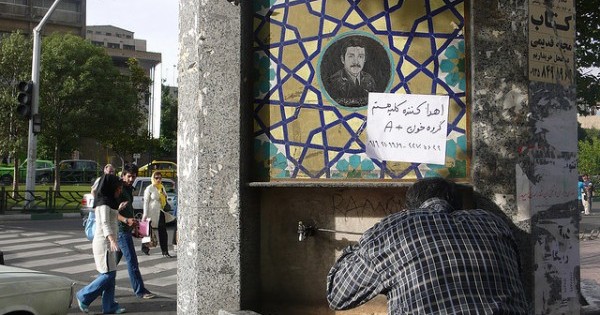
Are you thinking about buying or selling a kidney? If you are a citizen of Iran, you can do it legally: the country is unique in that regard. In 1988, nine years after the revolution, the Islamic Republic introduced “a paid living-unrelated donor renal transplantation program” in an attempt to eliminate its waiting list for kidneys. The program compensates sellers with an award of 10,000,000 Rials (less than $400) and vendors typically receive an additional, negotiated “gift” from the recipient. As a result, people now compete to sell a kidney: in Tehran, potential donors spray-paint their mobile numbers and blood type on walls close to the capital’s hospitals.
Such sellers are usually poor, often desperate, and frequently stigmatized—just as in countries where selling a kidney is illegal, says Julian Koplin, a doctoral candidate in philosophy at Monash University in Melbourne. That situation, he claims, “strengthen[s] the case against markets in kidneys.”
As he describes in an article in The American Journal of Bioethics, an increasing number of ethicists have argued in recent years that regulated schemes for selling kidneys are morally acceptable. University of Oxford philosopher Janet Radcliffe-Richards, for example, has written that “the commonest objection to kidney selling is expressed on behalf of the [sellers]: the exploited poor, who need to be protected against the greedy rich. However, the vendors are themselves anxious to sell, and see this practice as the best option open to them.”
Others contend that because there is no essential difference between the risks of kidney donation and kidney sale, the bad outcomes that sellers experience—including debt, depression, poor health and social isolation—must result from “black-market abuses” such as coercion, fraud, lack of follow-up medical care, and the impossibility of legal recourse.
But as Koplin describes in a comprehensive survey, such harsh consequences are experienced by kidney sellers in Iran as elsewhere. In a study of 300 Iranian sellers, conducted by Javaad Zargooshi, a urologist at the Kermanshah University of Medical Sciences in Iran, 90 percent of those surveyed believed that selling a kidney had had a “negative impact” on their general health, and 60 percent reported some type of postoperative pain. More than 90 percent of sellers felt sad or depressed, and nearly 50 percent agreed “they would sacrifice more than 10 years of their life … to regain their absent kidney.”
“Research conducted in countries as diverse as Bangladesh, Colombia, Egypt, India, Iran, Pakistan, and the Philippines shows that vendors typically experience significant harms and, in the long term, profound regret,” Koplin wrote to me via email. Most do not benefit financially, either: following the sale of a kidney, many sellers experience a decline in strength or stamina, affecting their ability to work in physically demanding jobs. One study of Bangladeshi sellers, for example, showed that 48 percent lost their jobs following nephrectomy (surgical removal of a kidney). Sellers in Moldova, Brazil, and the Philippines are often left unemployable because of an inability to continue farm or construction work.
Although Iran’s system may seem fair—sellers and buyers must be of the same nationality, so foreign “transplant tourists” cannot purchase a kidney from a native Iranian—the data from Iran suggest that the reality is very different, Koplin told me.
“The long-term decline in financial status reflects the increased difficulty finding or maintaining work when suffering under the typical repercussions of selling a kidney,” he says. “Kidney sellers may experience poor health outcomes because living in impoverished circumstances exacerbates the health risks of nephrectomy, but also because sellers may be unable to afford follow-up care or be unwilling to reveal to others that they have sold a kidney. The damage to sellers’ psychological and social wellbeing shows that establishing a regulated system does not, by itself, eliminate the stigma surrounding kidney selling.
“In short, Zargooshi’s research suggests that those most likely to sell a kidney—the desperately poor—are also the least suited to doing so.”


